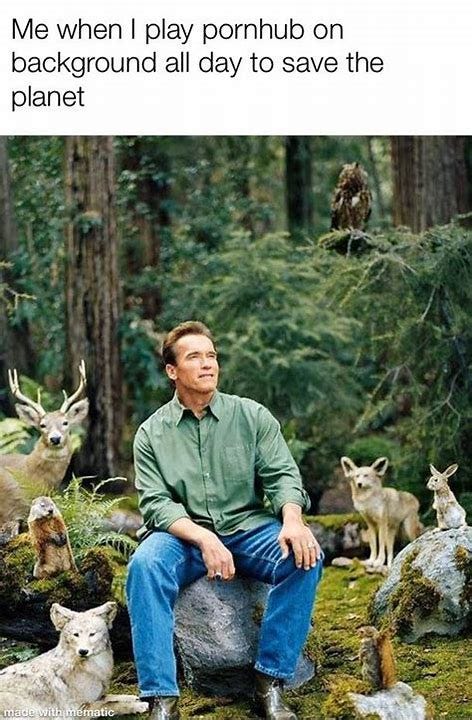Back To The Stone Age
In which Jack goes to the woods and experiences life without WiFi or cellular service...and lives to tell about it
Bring a compass. It’s awkward when you have to eat your friends.
Unknown
Erin and I just returned from camping with friends in Washington’s Olympic Peninsula for two days. We’re not experienced or proficient campers; for me, my camping experience ended with my Boy Scout days. So, rather than bring a tent, we rented a modified Mercedes Sprinter van from a friend. Imagine a rolling four-star hotel, and you’d be close to what we arrived at our campsite with.
Someone referred to it as “glamping,” and I wasn’t about to argue with that characterization. The van had a stove and a shower (neither of which we used), cabinet space, and a refrigerator (which we did use). The van’s electrical system is solar-powered, so we weren’t exactly “roughing it.”
However, we were in a place with no WiFI or cellular service, so for close to 48 hours, I had no idea what was happening in the outside world, and it was…f****n’ awesome. I can’t remember the last time I found myself anywhere without a connection to the world, so I thought I’d be nervous about it. What if something happened to Magnus or the cats? What if the person house-sitting for us needed to reach us? What if the world descended into WWIII?
Then I realized that no matter what happened, I couldn’t do anything about it for two days. The world would have to wait; it wasn’t going anywhere…and neither was I. And so I adapted pretty quickly to being in my own little world, even for a relatively short period.
Of course, I wasn’t there to write or check my email or respond to text messages. I was there to spend time with friends I don’t often get to spend much concentrated time with. Without a WiFi connection or cellular service, the temptation to sneak off and dive into distractions was removed. I had no excuse not to be present, so I found myself relaxing and enjoying the time I had with my friends.
Once upon a time, not so very long ago, relatively speaking, this was how we lived. Until the early ‘90s, the Internet wasn’t a thing. The iPhone wasn’t available until 2004, less than 20 years ago. Our era of perpetual distraction is comparatively new, but it’s completely changed how we relate to one another. I’m not always convinced that’s a good thing.
Like many things, it’s a good news/bad news conundrum. It’s made our world a much smaller place. My first video call was with a woman in Northern Cyprus. I was blown away that I was conversing with someone as if she was in the same room, though she was ten time zones away. Now we take that sort of thing for granted, as videoconferencing became how things got done during the pandemic. Business could be done, families could connect, and couples could communicate in ways that weren’t possible before. Face-to-face didn’t have to mean being face-to-face.
The pandemic brought about a sea change in how we communicate.
The bad news is the change in how we communicate and the sheer volume of information and entertainment available on the Internet often takes precedence over actual face-to-face interaction. Interpersonal relationships can founder on low thresholds for boredom and short attention spans as we look for ways to remain entertained and engaged. Social media can capture our attention in ways that interpersonal conversations don’t or can’t…and that’s very often not a good thing.
I thought a lot about this as I sat around campfires for the two days Erin and I camped in the woods. With no access to electronic distractions, I could focus on the friends gathered around me, most of whom were close to my age and who bridged the gap with the pre-Internet Age. We could remember what it was like to live before messages could be sent instantly across the world at no cost. And we could also recall what the innovations of the last 30 years or so had cost society.
Change always has its costs, of course. You don’t introduce sweeping changes in how the world communicates and accesses information without some fallout. Every action indeed has an equal and opposite reaction. Every time we gain something amazing and unique, there’s a good chance we’re losing something. It may not be something significant or even noticeable at the moment, but over time that change may grow, metamorphose, or even metastasize into something wholly unexpected. When we recognize and/or comprehend what’s happened, it’s upon us in a way that can’t be altered without significant adverse consequences. And so we learn to live with it as the price of progress.
On our last night, as I sat mesmerized by the campfire, I wondered how it could be that I’d given up (and/or lost) so much to get to where I am in life. I have few regrets, but those moments of peace- like staring contentedly into a campfire- have been so few and far between. Don’t get me wrong; I love my life. I just wondered why moments like that are too often so hard to come by- a roaring fire, surrounded by some of the best people a man could have in his life, not a care in the world.
Yes, those two days didn’t suck. And I hated for it to end, even as I knew that Erin and I had responsibilities to return to, as did everyone else at our campsite. We’d return to our worlds, life would resume, and we’d hop back in the saddle. Like me, I hope they feel a bit more relaxed and perhaps better equipped to deal with the bullshit the world will inevitably throw our way.
Sometimes, it helps to remove yourself from life to be reminded how good you have it. We’re incredibly fortunate and very conscious of it. Even though it can be easy to lose sight of that sometimes, I’m never unaware of where I’ve come from and where we are. When people ask me how I’m doing, I smile and say, “It doesn’t suck to be Jack.” And I mean that sincerely; those six words sum up how grateful I am for the life I/we have.
We packed up, said our goodbyes, and pointed the Mercedes van back to the “real world.” I couldn’t help but think how nice it was to be disconnected for a couple of days…and how I was already looking forward to doing it again.
When you face life without WiFi or cellular service, it turns out you can interact with people without distraction. And that can be a pretty fantastic experience.







When I was in the hospital for my aortic valve replacement, I had no internet for 2 weeks. I did have cell phone service, so I was able to provide friends with updates on my progress. There was also cable TV, so I could remind myself why I will never buy cable TV. After 2 weeks, when I got home, there were over 900 emails. I simply deleted everything that was more than a few days old and called it good.
Not exactly camping, and a very long way from fun, but partially unplugged.
Sometimes the DELETE button is your best friend. The idea of facing 900 unread emails is nothing if not daunting. I would suspect that's doubly true after your experience. If it's important enough, they'll get back to you, right?